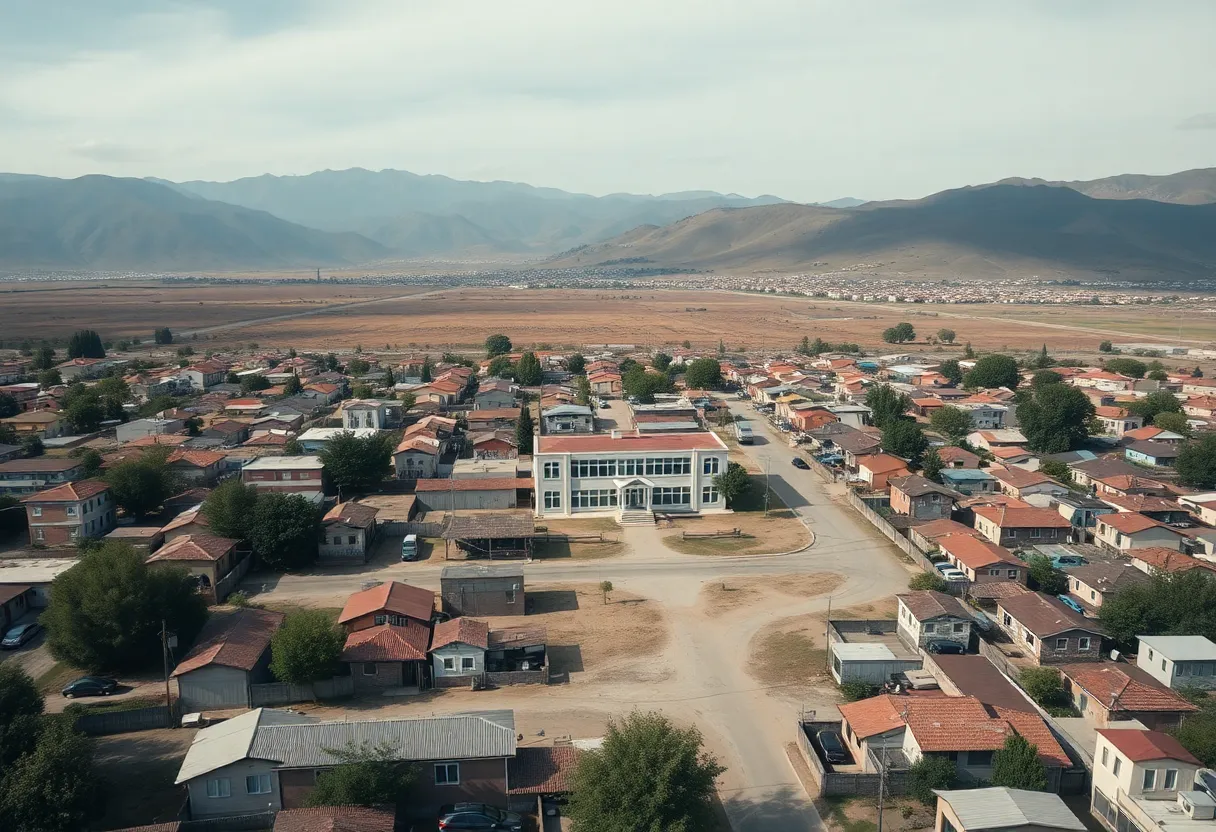News Summary
The future of the Center for Asbestos Related Disease (CARD) in Libby, Montana, is uncertain following a federal court hearing and asset seizure by the Lincoln County Sheriff’s Office.
Libby Asbestos Clinic in Crisis: Federal Court Hearing Sparks Controversy
In a shocking turn of events, the future of the Center for Asbestos Related Disease (CARD) in Libby, Montana, hangs in the balance following a federal court hearing in Missoula. The Lincoln County Sheriff’s Office made headlines earlier this year when they took the dramatic step of shutting down CARD, seizing its assets in connection with a staggering $3.1 million lawsuit brought against them by BNSF Railway Company.
Shutting Down Operations Amid Legal Turmoil
The abrupt closure of CARD has left many patients in distress. With a wealth of vulnerable individuals who rely on the clinic for their ongoing treatment, the shutdown raises serious concerns. In light of this emergency, patients are being directed to consult pulmonologists for vital monitoring appointments while imaging results will be mailed to them—a far cry from the personal care they previously received at CARD.
This legal battle is complicated, as BNSF was deemed partially responsible for the widespread asbestos contamination plaguing Libby. Allegations against CARD suggest that the clinic improperly diagnosed patients, which subsequently qualifies them for federal benefits. Recent reports indicate that out of approximately 2,000 diagnoses performed by CARD, over 300 were found to be false.
A Sordid Legal Backdrop
Relations between BNSF and CARD soured following a $6 million settlement awarded to the railway company in a lawsuit filed on behalf of the federal government. Amid mounting tensions, CARD has filed for bankruptcy. However, the organization managed to maintain its operations—much to the chagrin of BNSF, which has been vocal about enforcing accountability and demanding redress for its losses.
CARD’s attorney contends that BNSF’s asset seizure directly contravenes their bankruptcy agreement, and have argued vehemently for a temporary restraining order on the matter. The attorney expressed that the asset seizure not only undermines the financial viability of CARD but also poses a significant threat to public health and patient care.
The Fallout: Staff Departures and Patient Concerns
In the aftermath of the asset seizure, CARD has lost three employees, who have left to seek opportunities elsewhere. With a dwindling workforce, the clinic’s ability to serve its patients is further compromised. Meanwhile, BNSF insists that they have not received any payments prior to May and must enforce the judgment they secured, raising the stakes in this already tumultuous scenario.
A Complicated Government Involvement
The hearing saw additional complexity as the U.S. government sought to intervene, claiming that the seized assets rightfully belong to them due to federal funding supporting the clinic’s operations. Amidst Judge Dana Christensen’s confusion over the government’s late involvement—particularly in light of previous defrauding accusations against CARD—the path forward appears mired in uncertainty.
Pending a court ruling set for July 2 regarding the sheriff’s office’s asset sell-off, all parties involved have been encouraged to collaborate on a solution that addresses the myriad concerns associated with the ongoing debacle.
Health Implications for Libby Residents
Since its inception, CARD has offered crucial lung screenings, having screened more than 8,900 individuals concerned about asbestos exposure. With deadly estimates suggesting that 1 in 10 residents in Libby are affected by asbestos-related illnesses and a grim count of 694 resident deaths from 1979 to 2011, many are left grappling with the reality of their ongoing care amidst the clinic’s uncertain fate.
Public health stakeholders are particularly alarmed by potential funding cuts, as federal grants constitute roughly 80% of CARD’s revenue. With discussions about budgetary reductions looming under the current administration, the scope of patient care remains at risk.
The Bigger Picture and the Future
As the legal framework surrounding CARD deepens, implications resonate far beyond the clinic itself. The 2023 ruling by the Montana Supreme Court holds BNSF liable for the spread of asbestos through its transportation of contaminated vermiculite, an issue that will likely entangle the company for many years to come. With ongoing concerns about fraud and integrity, the narrative surrounding asbestos testing and treatment services has reached a breaking point.
As residents await the court’s decision, the state of health care in this once-thriving community continues to deteriorate, stirring a sense of urgency among patients and advocates alike as they brace for an uncertain future.
Deeper Dive: News & Info About This Topic
HERE Resources
The Lingering Danger of Asbestos: A Call for Action
Clinic Closure Leaves Libby Residents in the Lurch
The Looming Danger: Asbestos Regulations in Jeopardy
Potential Asbestos Ban Under Review as Health Risks Persist
EPA Seeks Pause in Asbestos Regulation Litigation Amid Industry Concerns
School District of Philadelphia Faces Federal Charges Over Asbestos Violations
Mounting Concerns Over Asbestos Use in America
Groundbreaking Criminal Charges Against Philadelphia School District Over Asbestos Mismanagement
EPA’s Daring Move: Reconsideration of Chrysotile Asbestos Ban Raises Alarms
The Hidden Dangers of Talc and Its Connection to Cancer Risks
Additional Resources
- KPAX: Libby Asbestos Clinic Shuttered After Court Order
- Wikipedia: Asbestos
- Missoula Current: Montana Asbestos Clinic
- Google Search: Asbestos Health Effects
- KPAX: Missoula County Narrows In on Marshall Mountain Cleanup Option
- Google Scholar: Asbestos Clinics
- Farmonaut: Missoula Graduation Highlights
- Encyclopedia Britannica: Asbestos



















